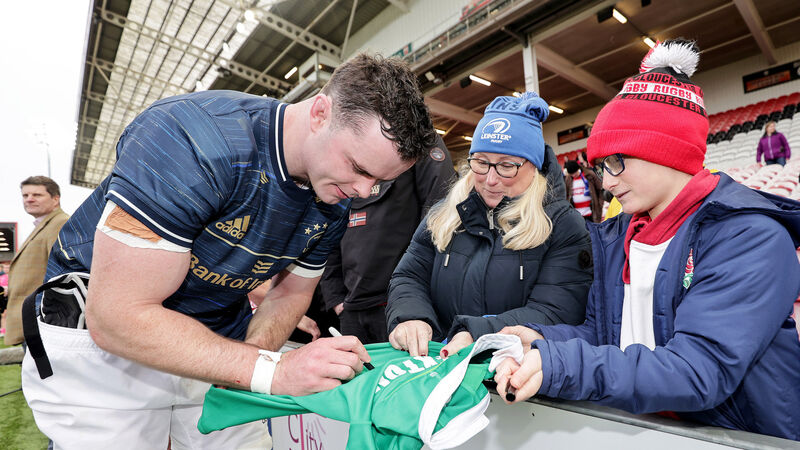Peter Jackson: Leinster operating on another level and have exposed competition's flaws again

Leinster's James Ryan signs autographs after the game. Picture: INPHO/Laszlo Geczo
Every once in a while someone comes along who is simply too good for his or her sport, like Martin Navratilova and Pete Sampras, Michael Schumacher and Tiger Woods.
Leinster have a long way to go to monopolise Rugby Union the way the aforementioned monopolised Grand Slam tennis, Formula One and the golfing majors but not a Champions’ Cup weekend passes now without reaffirmation of the capital province as a cut above the rest.













